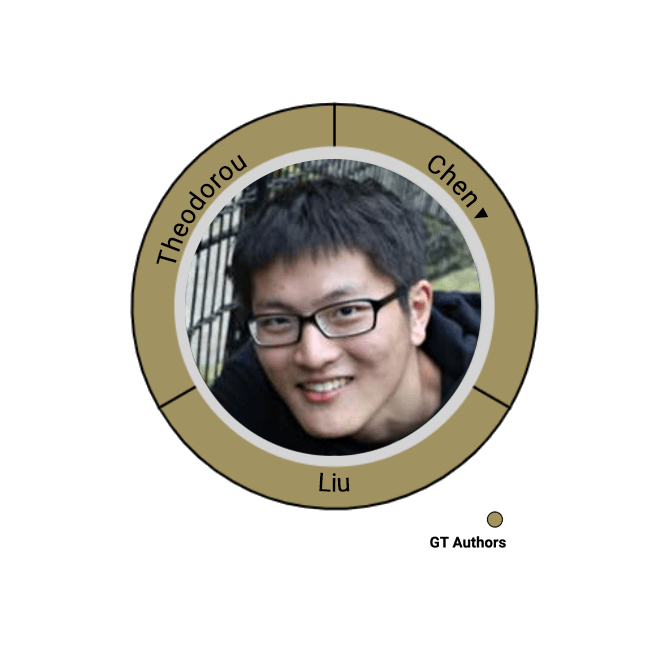
ICLR 2022
Lead Author Spotlight
Tianrong Chen, PhD student
Likelihood Training of Schrödinger Bridge using Forward-Backward SDEs Theory
#SCORE-BASED GENERATIVE MODEL
In this work, we present a novel computational framework for likelihood training of Schrödinger Bridge (SB) models grounded on Forward-Backward Stochastic Differential Equations Theory – a mathematical methodology appeared in stochastic optimal control that transforms the optimality condition of SB into a set of SDEs. Crucially, these SDEs can be used to construct the likelihood objectives for SB that, surprisingly, generalizes the ones for SGM as special cases. This leads to a new optimization principle that inherits the same SB optimality yet without losing applications of modern generative training techniques, and we show that the resulting training algorithm achieves comparable results on generating realistic images on MNIST, CelebA, and CIFAR10. Our code is available at https://github.com/ghliu/SB-FBSDE.

Q&A with Tianrong Chen
If you bumped into the plenary speaker at the conference, how would you describe your paper to them in 30 seconds?
Schrödinger Bridge (SB) is an entropy-regularized optimal transport problem that has received increasing attention in deep generative modeling for its mathematical flexibility compared to the Scored-based Generative Model (SGM). In this work, we present a novel computational framework for likelihood training of SB models grounded on Forward-Backward Stochastic Differential Equations Theory.
How did this work push you to grow technically, as part of a team, or in applying your work to the real world?
In this work, I collaborate with Guan (who is co-author of this paper) closely to pressure the ICLR in around four months. Accomplishing this work in such a short time is not an easy task, so I have to learn to communicate and collaborate efficiently.
What key takeaways would you share with people to help them remember your work?
Our findings provide new theoretical insights by generalizing previous theoretical results for Score-based Generative Model and facilitate applications of modern generative training for SB. We validate our method on various image generative tasks, e.g. MNIST, CelebA, and CIFAR10, showing encouraging results in synthesizing high-fidelity samples while retaining the rigorous mathematical framework.
Career or personal advice you would want from your future self?
Life can only be understood going backward, but it must be lived going forward.